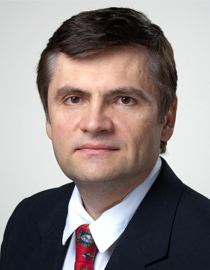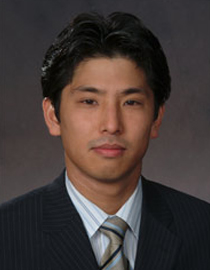 |
 |
| Vladislav Yakovlev | Arum Han |
A team of researchers led by Vladislav Yakovlev, professor in the Department of Biomedical Engineering, and Arum Han, associate professor in the Department of Electrical and Computer Engineering at Texas A&M University, has been awarded a Major Research Instrumentation grant from the National Science Foundation for its efforts in developing a new tool for studying large populations of cells with single-cell resolution without destroying them.
The instrument, Yakovlev says, is expected to overcome many of the challenges associated with conventional cell analysis, such as the use of molecular labels or analytical approaches that destroy cell viability, while providing a more effective alternative to the labor-intensive and slow approaches used for characterizing cell’s biophysical and chemical properties.
The overall instrument will be composed of an optical sensing unit optimized for chemical and biophysical analysis of cells and multifunctional microfluidic devices providing standardized platforms for cell delivery, sorting, and in situ validation of cells’ elastic properties, all with single-cell resolution, Yakovlev explains. This unique instrument to be developed will have broad applicability in the areas of molecular and cellular biology, agriculture, engineering, medicine (most notably, cancer research, diagnostics and drug delivery), and national defense.
Joining Yakovlev and Han on the research team are Paul de Figueiredo of the Texas A&M Health Science Center, Robert Burghardt of the College of Veterinary Medicine & Biomedical Sciences at the Texas A&M, and Michael Pishko of the University of Wyoming.
The Major Research Instrumentation Program serves to increase access to shared scientific and engineering instruments for research and research training in the nation’s institutions of higher education, not-for-profit museums, science centers and scientific/engineering research organizations. The program provides organizations with opportunities to acquire major instrumentation that supports the research and research training goals of the organization and that may be used by other researchers regionally or nationally.